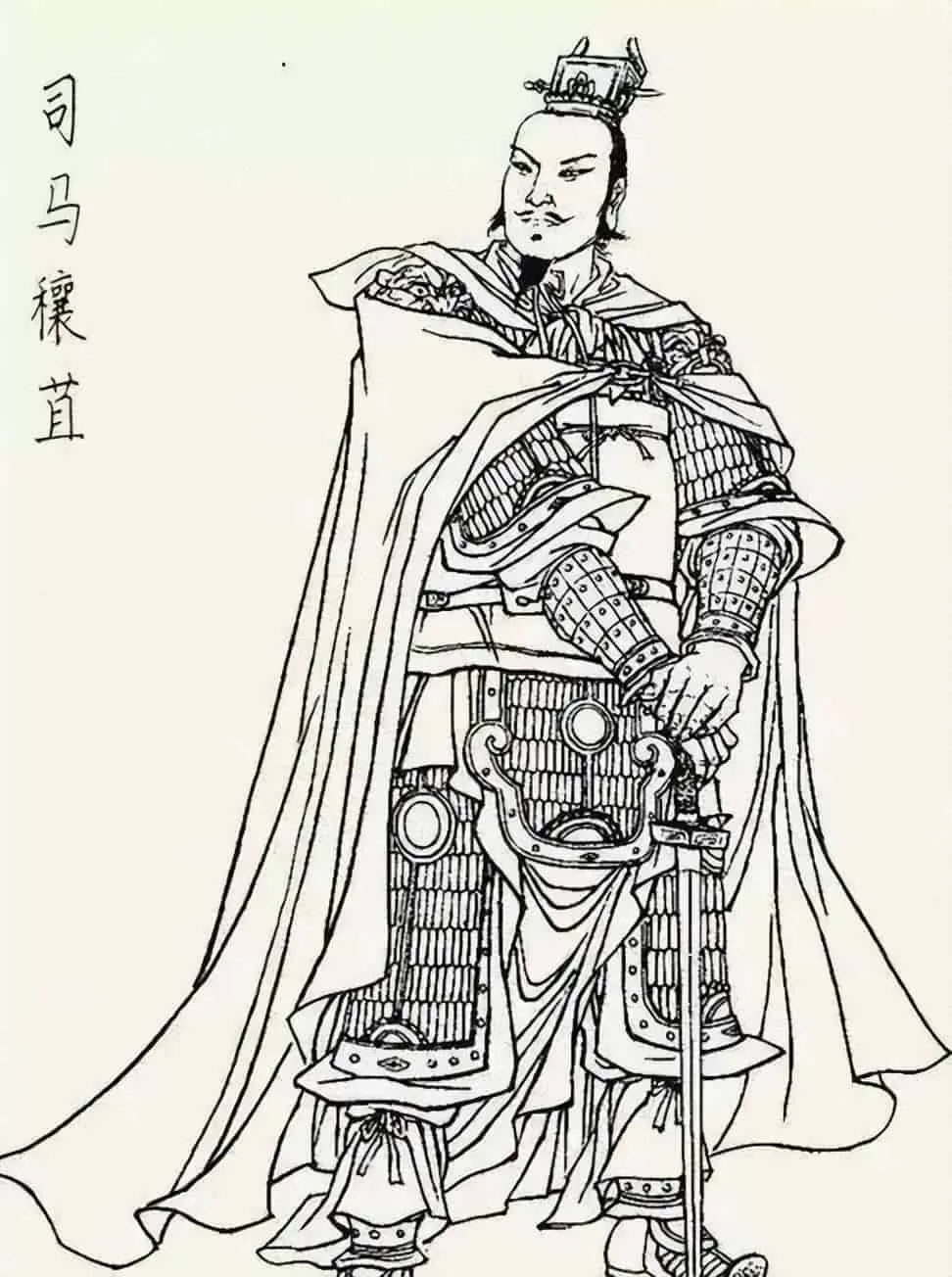
Tian Rangju (dates of birth and death unknown), also known as Simayu Rangju, was a native of the State of Qi during the late Spring and Autumn Period. He was a descendant of Tian Wan (Chen Wan) and a collateral branch of the Qi Tian clan, renowned as a military strategist in the late Spring and Autumn Period.
During the reign of King Jing of Qi, the state faced military aggression from the States of Jin and Yan. Rangju, known for his ability to "attach the masses with culture and deter the enemy with martial prowess," was recommended by the minister Yan Ying to serve as a general and lead the army against the forces of Jin and Yan. It is said that before setting out on campaign, he reviewed the troops and made clear the rules of discipline. However, Zhuang Jia, a favored minister of King Jing who was appointed to oversee the military, did not follow the rules and arrived late. Rangju ordered the law enforcement officer to behead Zhuang Jia in public. Subsequently, King Jing sent an envoy galloping into the camp to save Zhuang Jia, but Rangju also had the envoy's servant beheaded, causing the entire army to be in awe. As a general, he showed concern for his soldiers, personally inquiring about their food, drink, and illnesses, and sharing his own rations with them. This boosted the morale of the troops, who eagerly sought to fight and even the sick begged to go. When the armies of Jin and Yan retreated upon hearing of his reputation, Rangju seized the opportunity to pursue and defeat them, regaining all the lost territories of Qi. For his achievements, he was promoted to the position of Grand Sima, hence the name "Simayu Rangju." Later, he fell out of favor due to slander from the Bao, Gao, and Guo clans and died of illness.
Tian Rangju conducted profound research and discourse on ancient military strategies before the Spring and Autumn Period. During the Warring States Period, King Wei of Qi ordered officials to compile the ancient military strategies of the Sima, appending Rangju's elucidations on ancient military strategies to it, titled The Military Strategies of Simayu Rangju, also known as The Sima Strategies, which became famous in later generations. The five surviving chapters of The Sima Strategies partially reflect Rangju's military thinking. He advocated "taking benevolence as the foundation" and "stopping war through war," emphasizing the distinction between governing the military and governing the state. In governing the military, he proposed using "righteousness," "martial prowess," and "law" as criteria. He abstracted various factors in war into the relationship between "light" and "heavy," using "weighing the light and heavy" to elucidate various military principles, embodying a simple dialectical thought. Yan Ying evaluated him as someone who "can attach the masses with culture and deter the enemy with martial prowess."
Provides The Most Comprehensive English Versions Of Chinese Classical Novels And Classic Books Online Reading.
Copyright © 2025 Chinese-Novels.com All Rights Reserved
